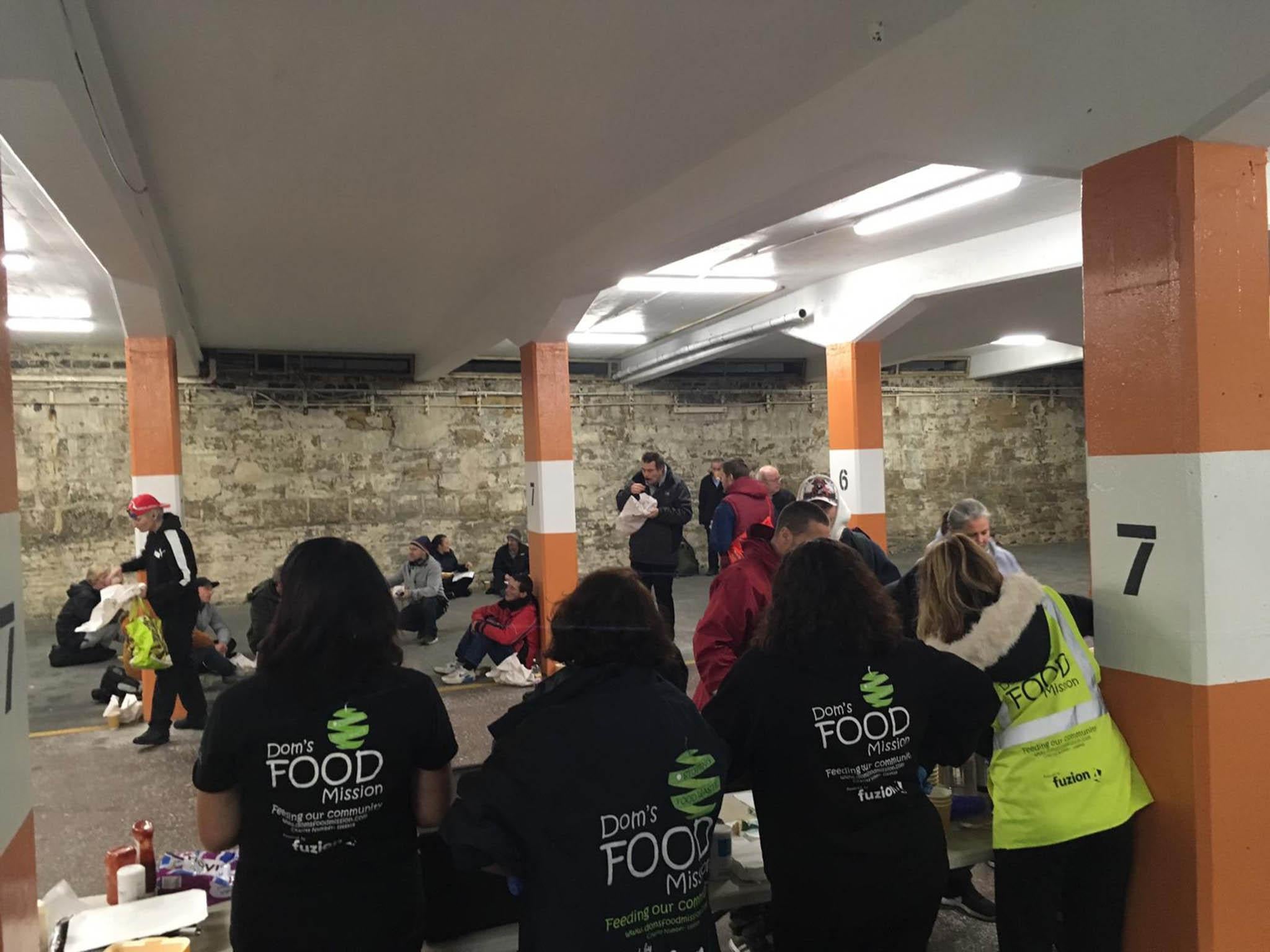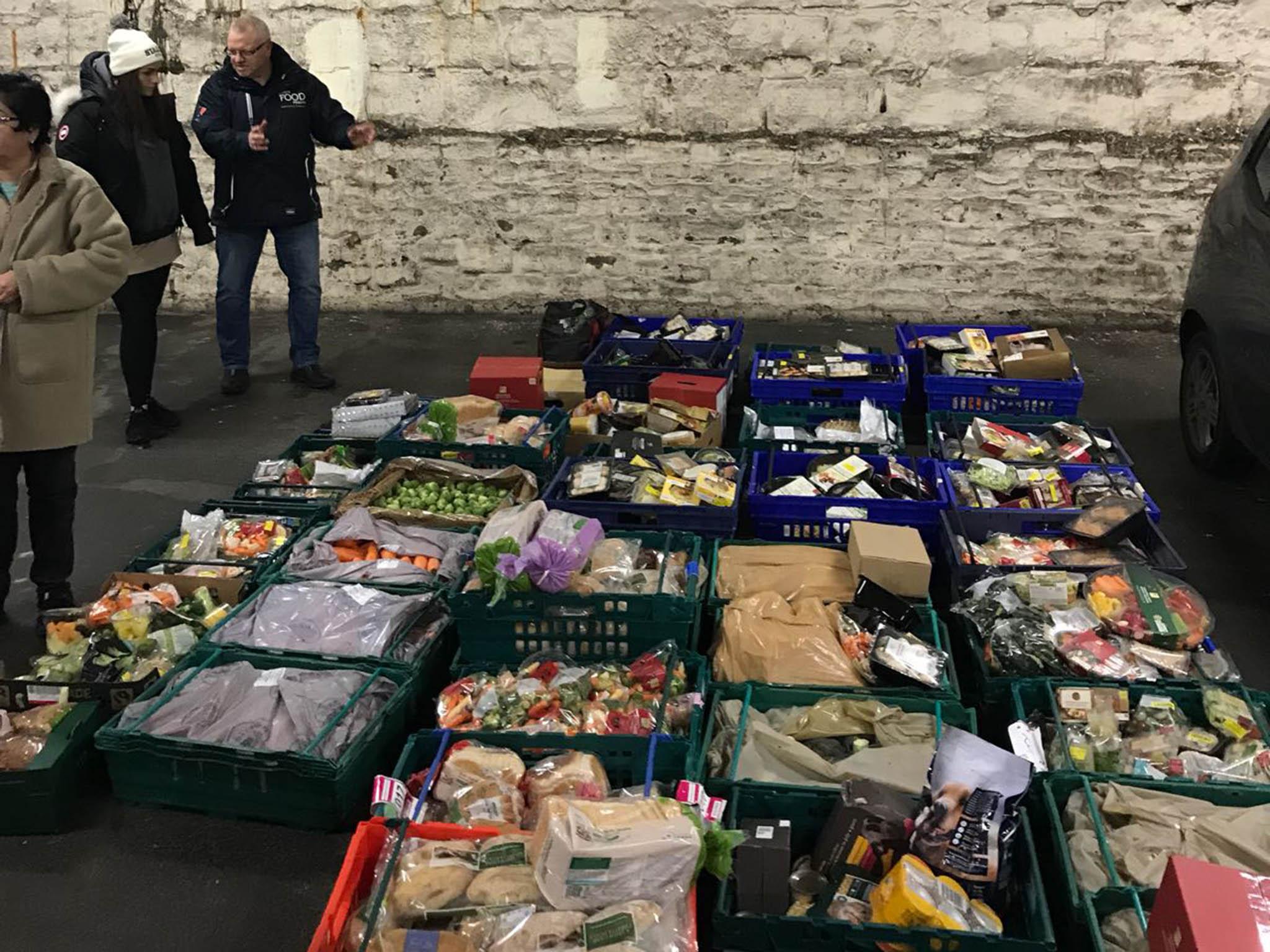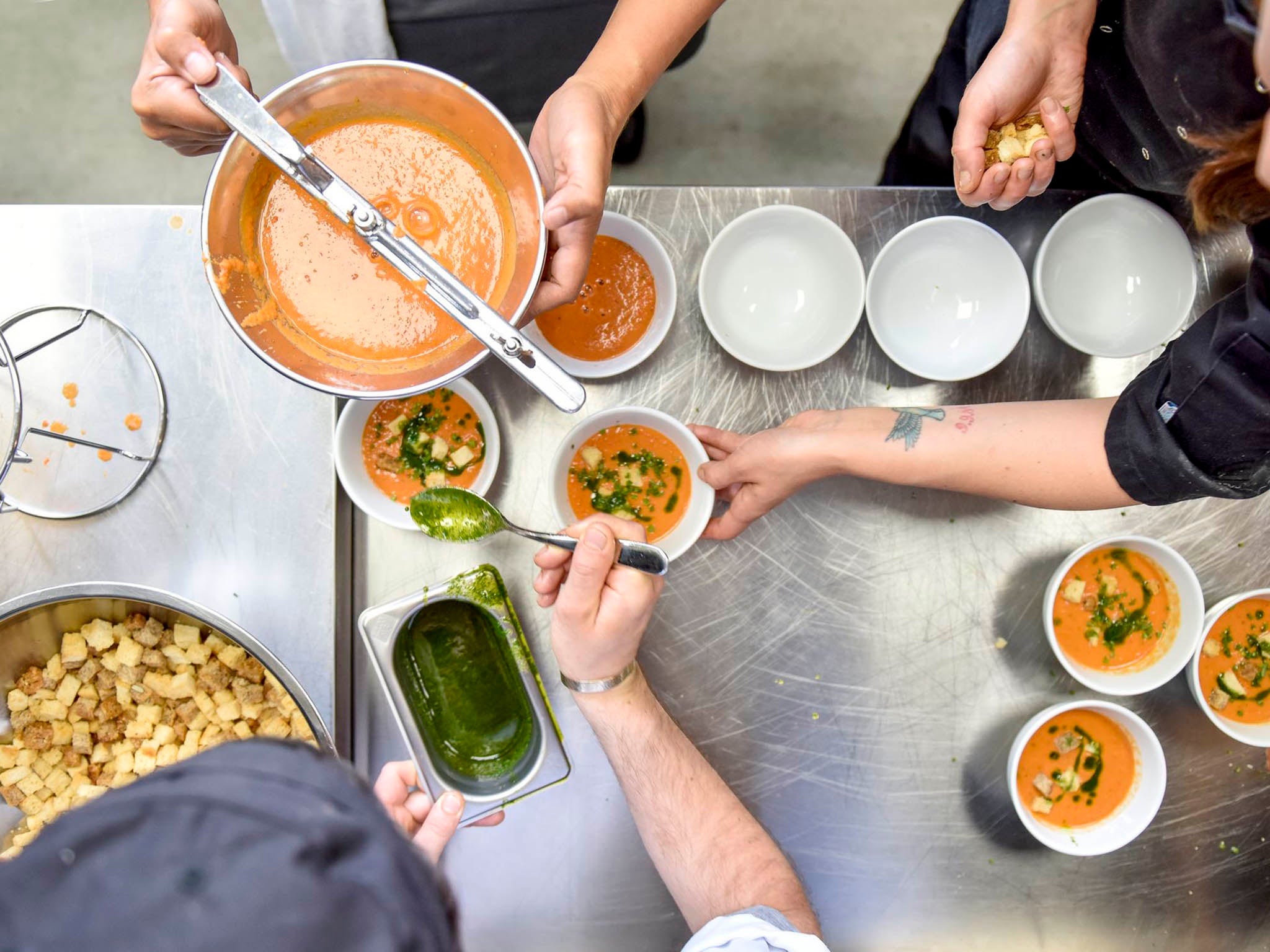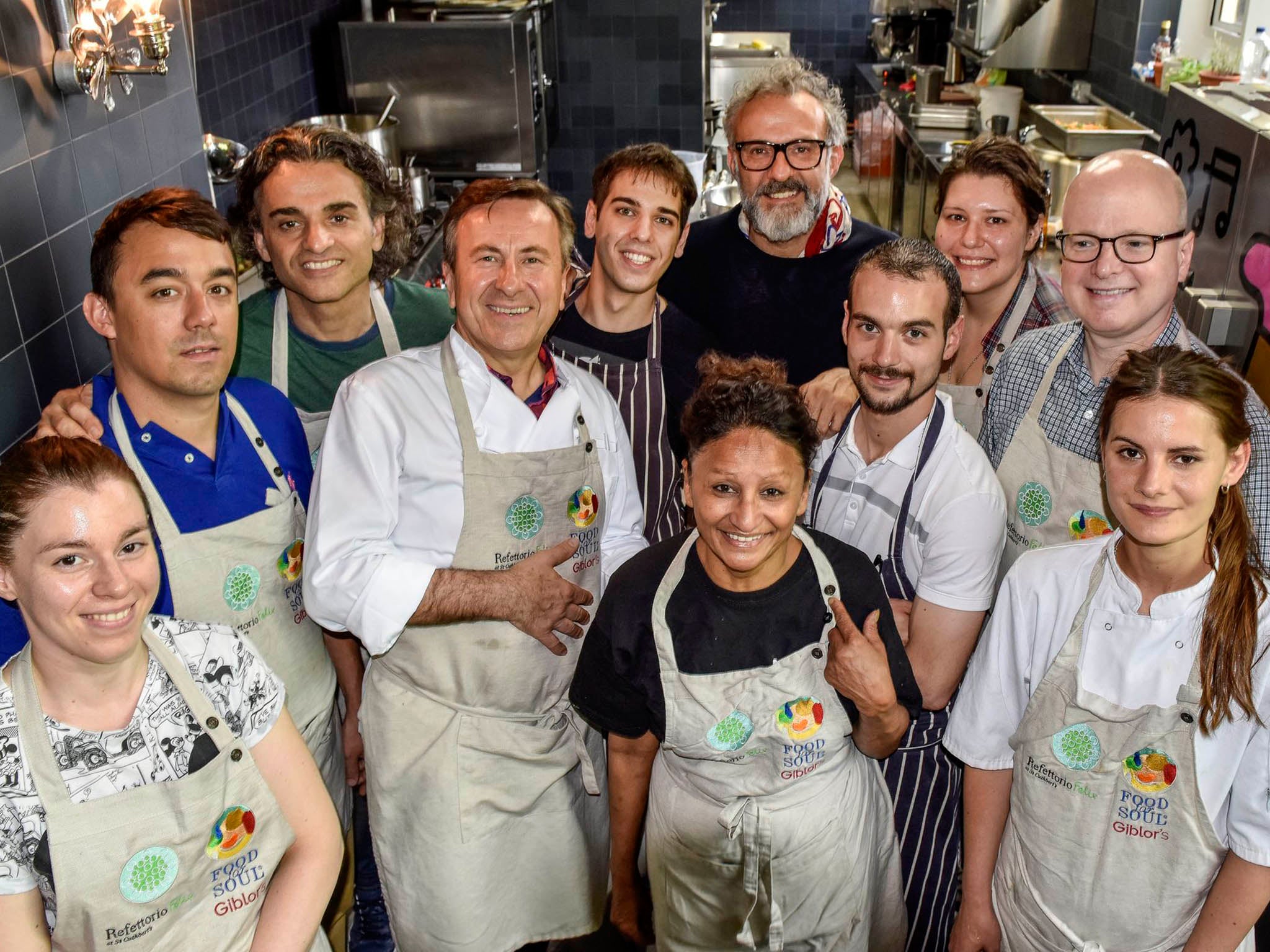Food for the homeless: How startup projects are helping feed vulnerable people
There’s an ever-burgeoning number of food schemes aiming to help Britain’s 320,000 homeless people. Jo Lamiri highlights a few


Your support helps us to tell the story
From reproductive rights to climate change to Big Tech, The Independent is on the ground when the story is developing. Whether it's investigating the financials of Elon Musk's pro-Trump PAC or producing our latest documentary, 'The A Word', which shines a light on the American women fighting for reproductive rights, we know how important it is to parse out the facts from the messaging.
At such a critical moment in US history, we need reporters on the ground. Your donation allows us to keep sending journalists to speak to both sides of the story.
The Independent is trusted by Americans across the entire political spectrum. And unlike many other quality news outlets, we choose not to lock Americans out of our reporting and analysis with paywalls. We believe quality journalism should be available to everyone, paid for by those who can afford it.
Your support makes all the difference.For Dom Warren, it all began one day in 2015 on the school run. “I noticed in the playground that some of the children obviously had a fairly tough life. So I came up with the idea of taking surplus foods from people’s cupboards, to help feed people in my own town.”
He birthed his award-winning charity, Dom’s Food Mission, on top of a demanding 40+ hour week working as an electrical fitter. But with the support of his wife Alexandria, a director at work and 50 people in a Facebook group, it took off quickly. “The first week, we filled our car and delivered food to a food bank and the Salvation Army.
“My house started to look like a warehouse: our kids, then 3 and 6, were packing up the boxes, we had 1,000 people on Facebook and members of the public were ringing the doorbell every hour.”

A major turning point came after five months. “A woman phoned from M&S, offering their surplus food – everything from fresh chickens to frozen food.
"I explained that I didn’t have a team, no vans, just me and my wife, but the deal was signed. She urged us to become a registered charity, which we did, and M&S were soon followed by Morrisons. The people at these superstores are phenomenal. They all say, ‘Thank God you did this. We hated having to throw food away.’ They had nowhere to take it.”
Donations from Dom’s company, help from local sponsors and fundraising campaigns have enabled the charity to grow its fleet to seven vehicles. “We collect a whole Transit van of food 365 days a year, wind, rain or snow, from superstores in Bexhill, Hastings and St Leonards, Costa, Sainsbury’s, KFC. But we couldn’t do it without our amazing volunteer team.”
It’s not all been plain sailing. “I get a lot of emails that keep me awake at night, things like, ‘We can put the heating on but we can’t eat’. At first we had people saying they needed food, but they didn’t, so we now only supply our 4600 mouths a month via registered community and children’s centres, homeless shelters, hostels, women and children safe houses…ordinary people struggling to put food on the table for their families.
Tuesdays and Sundays are particularly special. Hot meals cooked from donated food by local pubs and restaurants feed up to 75 homeless people – and their dogs – underneath a car park.

Some of the donated surplus food is even cooked by children in local schools as part of the charity’s project, A Helping Hand, which encourages young people to help others. “My wife Alexandria helps them make meals for less fortunate people, which is key to what we do. There’s something very special about an eight-year-old cooking surplus food into something that will feed the homeless.”
Dom’s dream – and he certainly has the charisma, energy and expertise to make it reality – is to roll his charity out across the country with government backing. “I’d love to see vans going up and down the motorways feeding people in Manchester and Liverpool. I constantly get calls from Inverness, Burnley, Newcastle, asking for advice. Imagine what we could do with serious funding.” And, with that, he’s off, giving up yet another Friday night to collect food from Tesco.
Other homeless schemes around the UK
As with Dom, it took just one small incident in 1989 for Icolyn "Ma" Smith to decide to set up a soup kitchen in Oxford, using her pension to buy ingredients. Now an 87-year-old great grandmother, she says, “I was appalled to see a teenage boy rummaging through bins for food. So that day I went home, got my pots and pans and started cooking. I knew I had to do something for him and others like him.”

The Icolyn Smith Foundation is now a charity, feeding a three-course meal to around 50 homeless people twice a week. “My parents were farmers in Jamaica and it was hard work, but it was a small community and everyone looked after each other. I brought that with me when I came to Oxford in 1965.” Last year, her dedication saw her pick up a Pride of Britain award.
In London, Refettorio Felix was set up by Massimo Bottura as part of his not-for-profit Food for Soul initiative. Volunteers cook and serve a daily hot lunch to homeless and vulnerable people – 1,100 a month – using surplus fresh ingredients sourced by The Felix Project.
A typical menu, bringing waste produce back to life, may include spinach and courgette soup, slow-cooked chicken with capers and olive oil, with smashed roots and apple tart. Top London chefs even drop in to cook, such as Brett Graham of The Ledbury and Francesco Mazzei of Radici. Chef Carlo Scotto of Xier says: “Spending the day at Refettorio Felix with my team was an incredible experience. It’s important that we give back to people less fortunate and Refettorio is the perfect way to attach food to the soul.”
Having volunteered at Refettorio Felix, I’d wholeheartedly agree. Serving a nutritious, restaurant-standard meal to someone who lives on the streets gives them respect and a chance to enjoy something many of us take for granted – the pleasure of good food (even if a few of them do grumble when they find kale on their plate).

Like London, Manchester is another of Britain’s homeless hotspots, so it’s no surprise that the city has seen several initiatives take off. Not Just Soup sees some of the best local restaurants provide fresh food for the homeless.
Co-founded by Sam Jones, Not Just Soup partners with a group called Coffee4Craig which provides coffee, clothes and other services to the homeless and vulnerable. He says, “We decided to add food. Not Just Soup costs nothing to run, yet we have provided 32,000 meals in two years. The support we’ve had from the restaurant community – more than 50 so far – has been incredible. It’s imperative in helping feed people who need it and there are many who do.” One homeless recipient of the scheme’s meals bears this out, saying, “If we didn’t have this, we wouldn’t eat.” That’s the stark reality.
Other great schemes allow you to add £1 or more to your bill to help the homeless. These include StreetSmart with 578 participating restaurants (in 2017, they raised an impressive £662,000) and Share the Meal, an app set up by the United Nations World Food Programme: so far, they have shared over 31 million meals worldwide.
Join our commenting forum
Join thought-provoking conversations, follow other Independent readers and see their replies
Comments